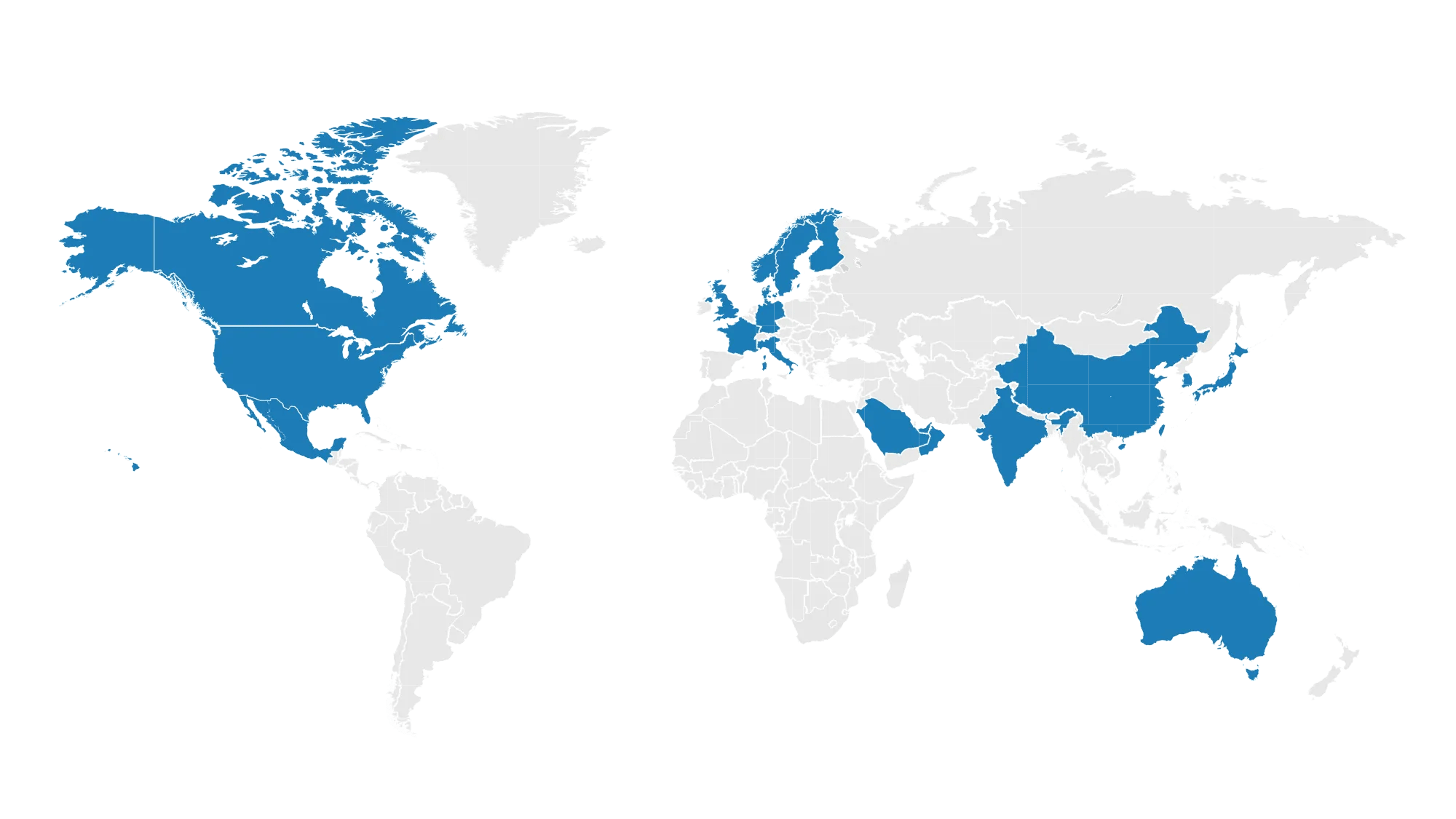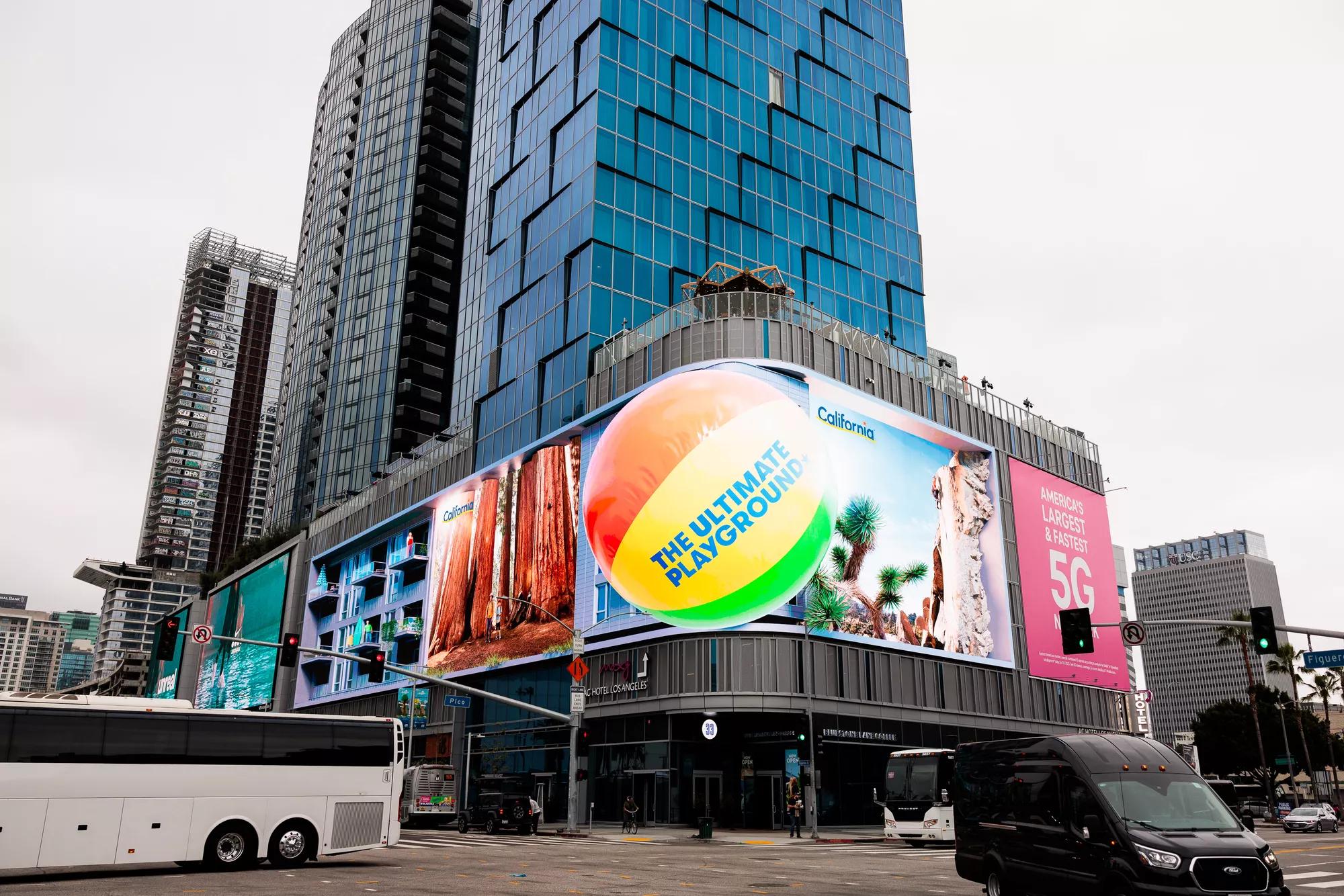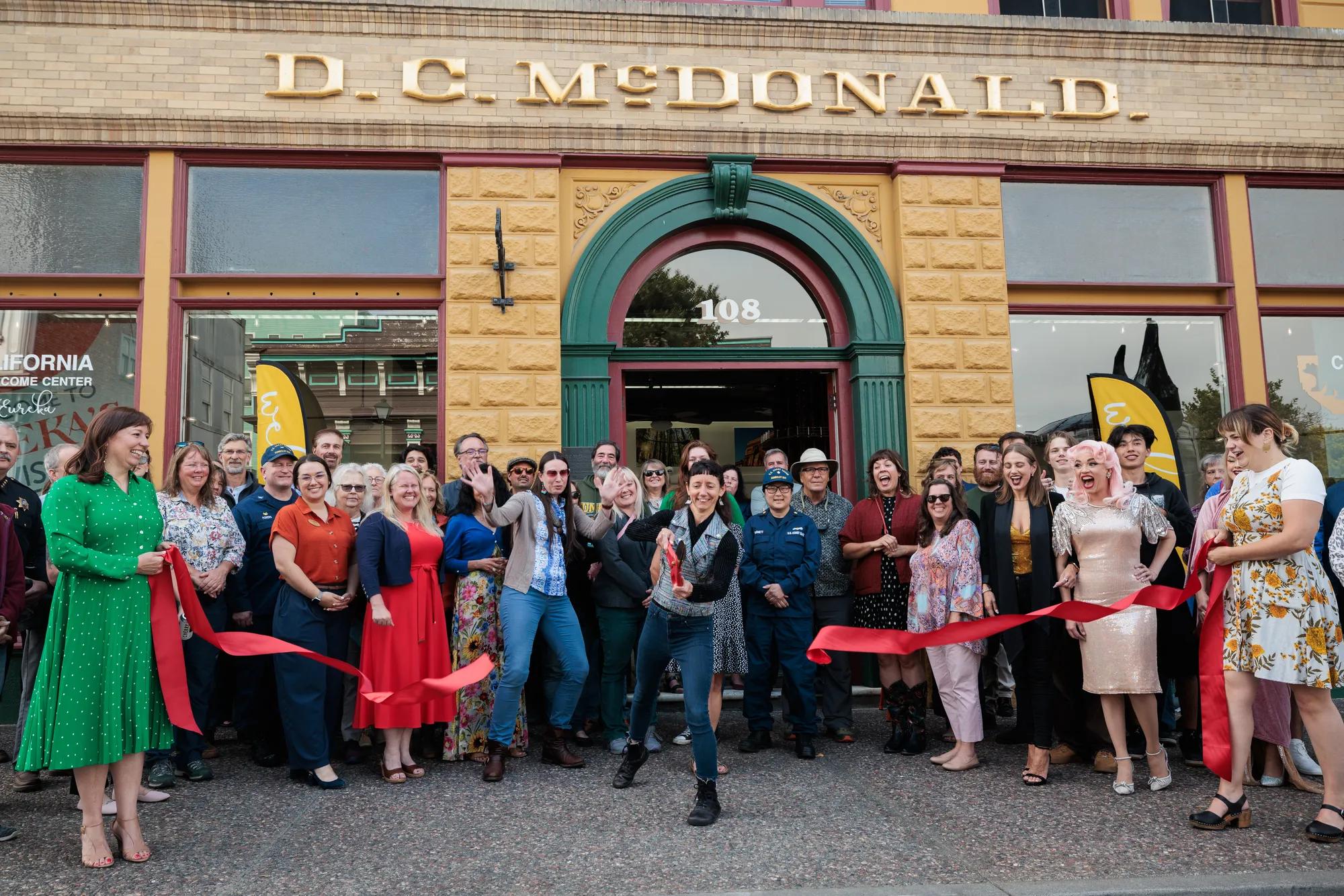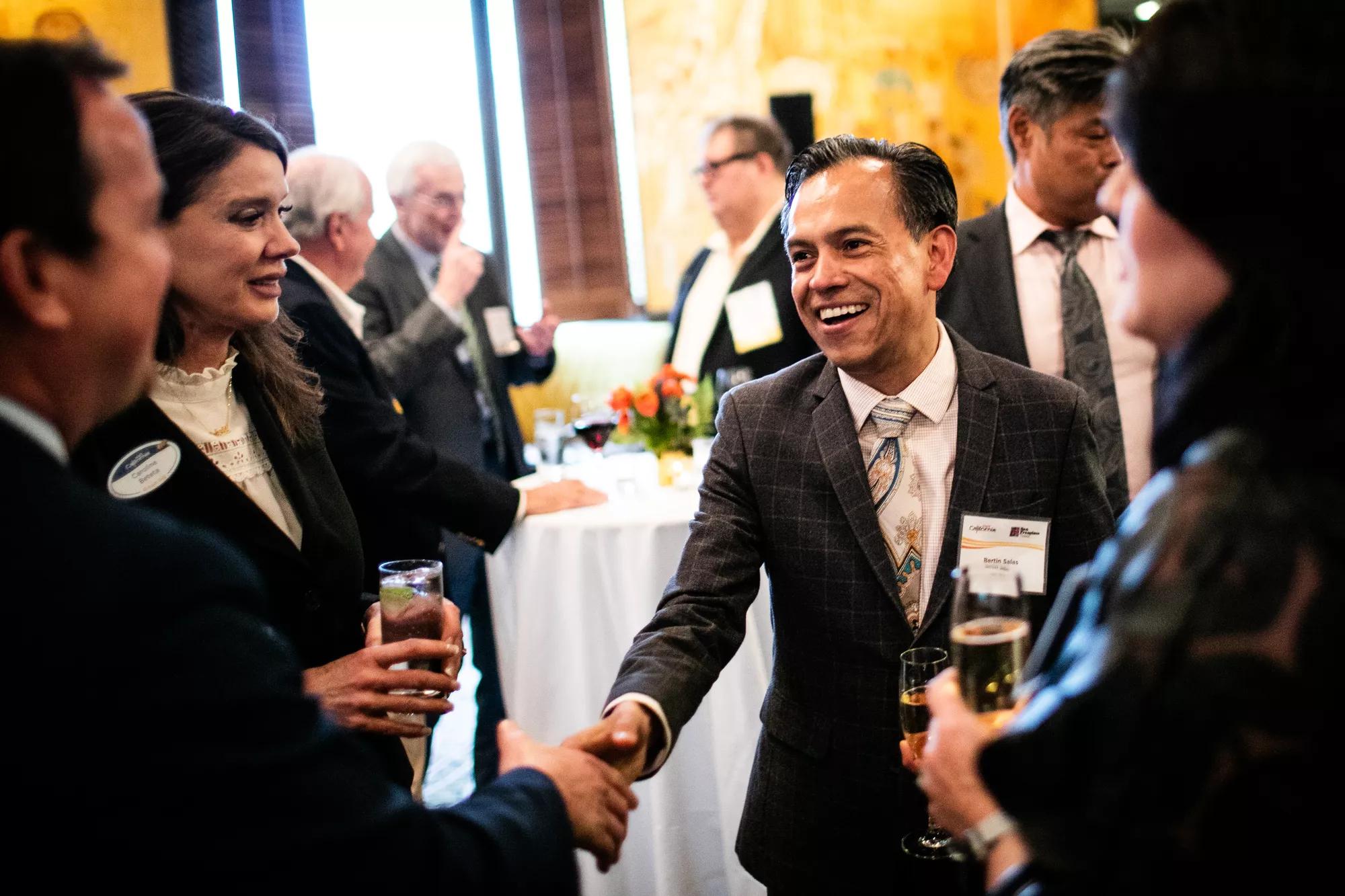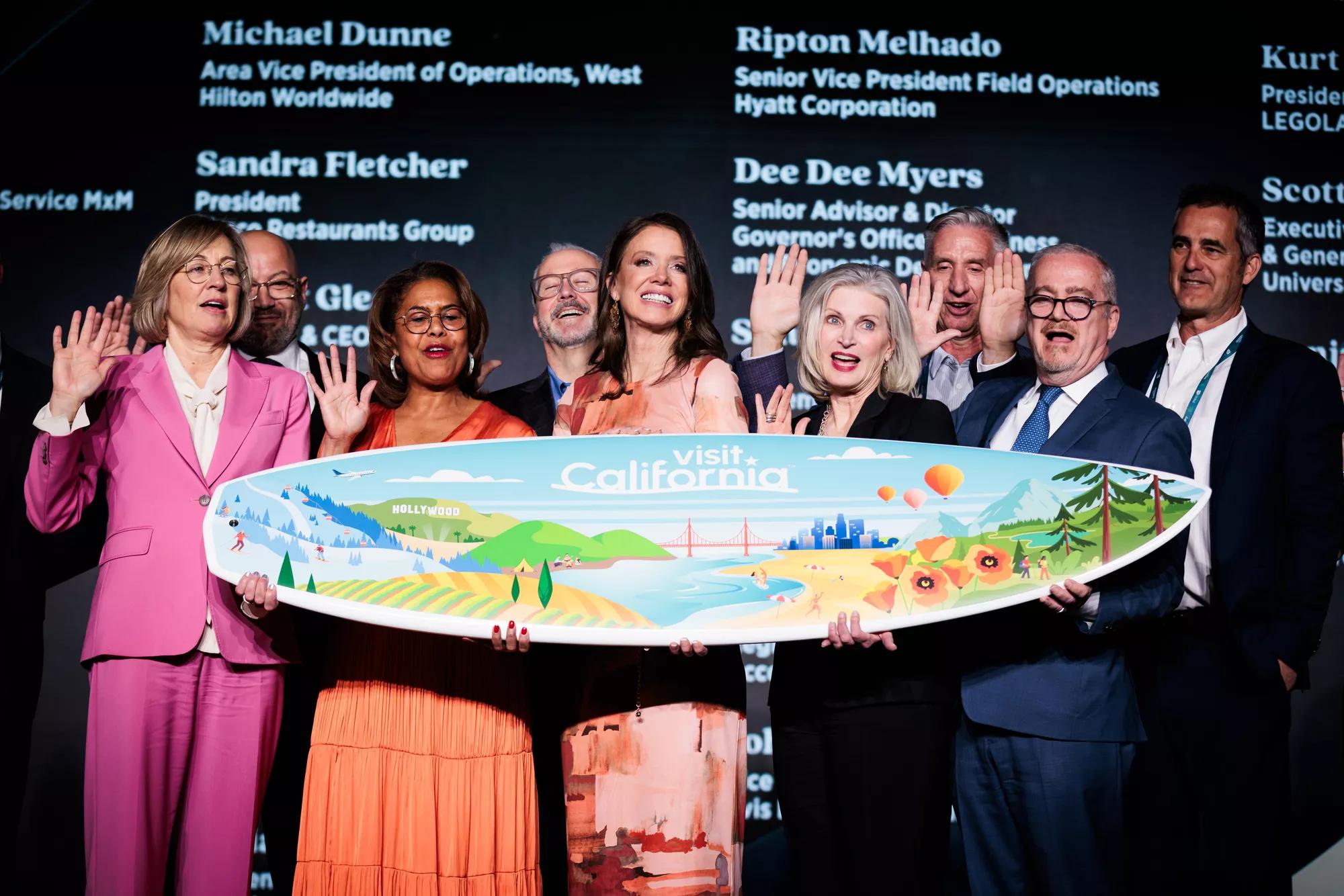Capitol hearings put politics, mega-events and tourism in focus
Jon Changus
Sept. 5, 2025
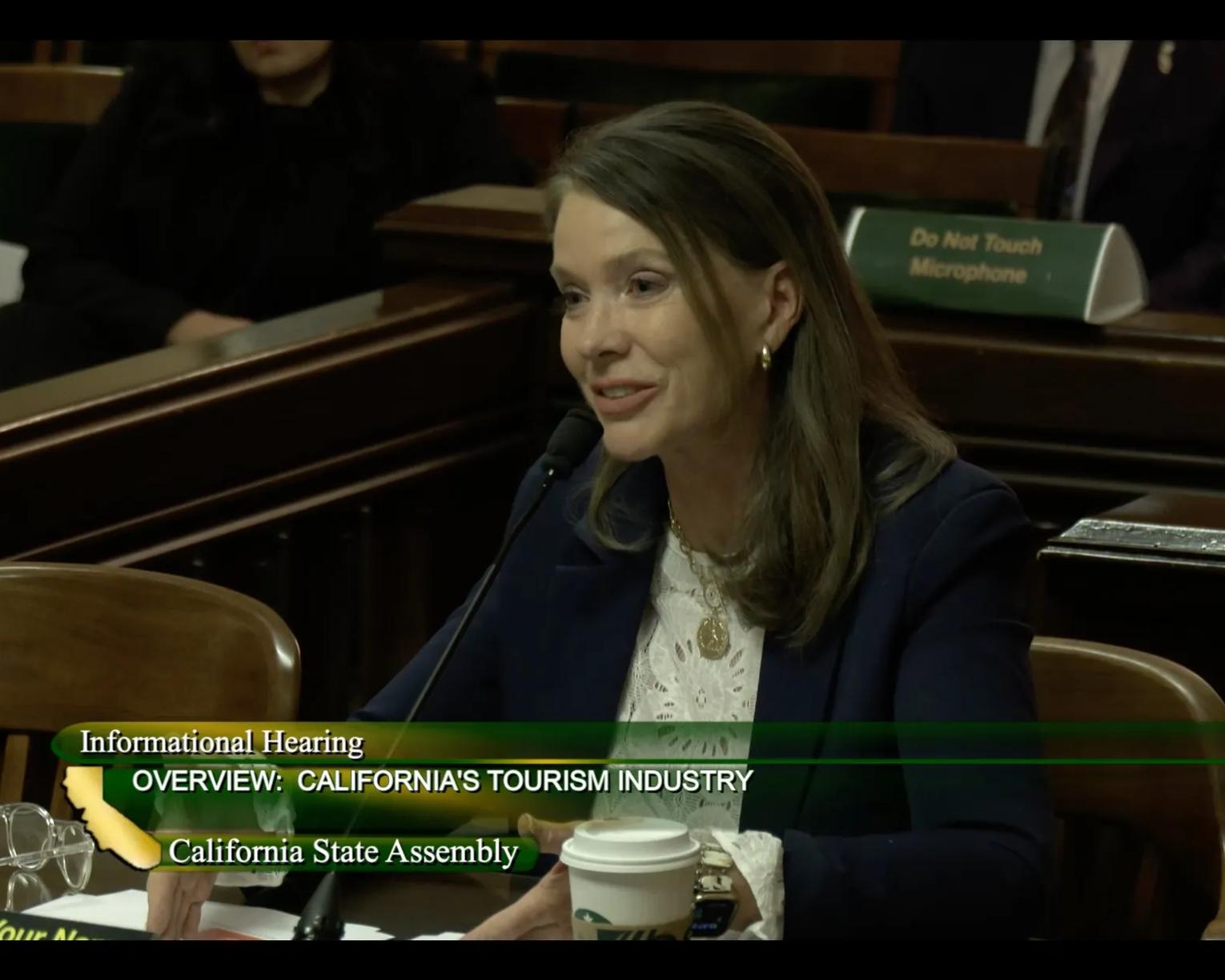
California’s decade of global mega-events generating attention from public, media and elected officials
As the state and national political landscape evolves at a frenetic pace, expectations are also high as California prepares to host the 2026 World Cup and 2028 Olympics. These conditions are driving prolific media coverage, and have also attracted the attention of elected officials. Now, tourism is a focal point of state political leaders looking to better understand the industry and the potential of these high-profile events.
California State Senate committee sets its gaze on LA28
In July, Visit California provided testimony before the Senate Special Committee on International Sporting Events, chaired by Senator Ben Allen, which held its inaugural hearing to discuss the challenges and opportunities of hosting the LA28 Olympic and Paralympic Games.
Ryan Becker, senior vice president of communications and strategy for Visit California, delivered a tempered message on the state of California tourism: “We've seen modest growth in the post-pandemic environment, but economic and geopolitical headwinds have softened the outlook for the foreseeable future. We're forecasting a decline in overall visitation to the state for the first time since 2020.”
After a year of flat growth in 2024, 2025 is expected to see the first annual decline in visitation since the COVID-19 pandemic driven by a forecasted drop of 9.2% in international visitation..
This context was crucial for discussing the lessons learned from the Paris 2024 Olympics and recalibrating expectations for the economic impact of upcoming mega-events. If LA28 mirrors Paris 2024, the most significant benefit will be the chance to showcase a refreshed global image of California as the nation’s most welcoming destination. LA28 is expected to reach over five billion global viewers.
Other panelists in the hearing included Reynold Hoover, CEO of LA28; Paul Krekorian, executive director for the Office of Major Events for the City of L.A.; and Fesia Davenport, CEO for the County of L.A. Their testimonies highlighted that a successful LA28 and other future mega-events will depend on deep coordination across all levels of government on everything from transportation and safety to telecommunications infrastructure.
Assembly committee explores status of tourism at the state and local level
On Aug. 20, the Assembly Arts, Entertainment, Sports and Tourism Committee invited Visit California to provide insight into the state of California’s tourism industry. Assemblymember Chris Ward, the committee chair, set a clear tone for the hearing, emphasizing the need to move past political rhetoric and focus on economic reality to get the tourism sector back on its feet.
Caroline Beteta, Visit California’s President and CEO, explained that despite tourism’s crucial role in the state’s economy, the industry is struggling. “While visitor spending in California's tourism industry has seen modest recovery since the pandemic, it has not kept pace with inflation,” she shared with the committee. “Full recovery from the pandemic remains elusive.”
Beteta shared that international visitation for the first half of the year is largely following the downward trend forecasted in May. Still, she noted the California brand remains a powerful draw, as room demand is up and outperforms the state's main domestic rivals.
The hearing then shifted to a panel of local DMO leaders, who offered a ground-level look at the challenges and opportunities facing their communities.
- Mike Testa, president and CEO of Visit Sacramento, highlighted a strategy that focuses on events and experiences, rather than iconic landmarks, to attract visitors.
- Lauren Salisbury, vice president of communications at Visit Santa Monica, discussed the struggles of combatting negative media narratives about the L.A. wildfires while also dealing with a steep decline in international visitation.
- Rhonda Salisbury, CEO of Visit Yosemite Madera County, echoed the media narrative concern, noting the damaging effect sensationalized headlines can have on tourism to Yosemite National Park.
- Kerri Verbeke Kapich, COO of San Diego Tourism Authority, noted that competition for hosting major sporting events is growing as many states now offer funding to support bids – a practice California currently does not.
Assembly Select Committee homes in on the effects of tariffs
The summer’s third hearing brought a new focus: Status of trade and investment between California and Asia and the effects of U.S. trade tariffs. The hearing was convened by the Assembly Select Committee on Asia/California Trade and Investment and chaired by Assemblymember Jessica Caloza.
California Lt. Gov. Eleni Kounalakis, who also serves as the state's trade representative, kicked off the hearing by underscoring the vital importance of California’s relationship with the Asia-Pacific region: “Whether it's partnering with ministries and provinces in China on carbon markets, working with Japanese and Korean partners to establish green shipping corridors, or exchanging wildfire strategies with Indonesia and Australia, California will continue to be part of a Pacific coalition committed to environmental sustainability.”
Her remarks set the stage for Deputy Consul General Takeshi Ishihara from the Consulate General of Japan in San Francisco, who provided a closer look at the unique and special bond between California and Japan.
Caroline Beteta provided a deeper look at international visitation through the first half of the year, focusing on Visit California’s priority markets in Asia. “2025 is the first time since the pandemic that we’re experiencing about a 9.2% drop in [international] visitation,” she testified. “Across our priority markets in Asia, it’s a mixed picture — South Korea’s dipping 4% but we’ve got green shoots in India and China.”
Beteta noted air arrivals from India and Japan are slightly up, while arrivals from South Korea are down. The picture for China is more complex: though air arrivals were up 6% in the first half of 2025 compared to a forecasted decline, this growth was primarily driven by an exceptional January due to the Chinese New Year.
Visit California is committed to a long-term presence in Asia, investing $4.4 million this fiscal year across these four key markets to keep the state competitive and relevant while fostering strong trade and travel media relationships.
For more information about the legislative committee hearings or Visit California’s public affairs strategy, contact Jon Changus at jchangus@visitcalifornia.com.



